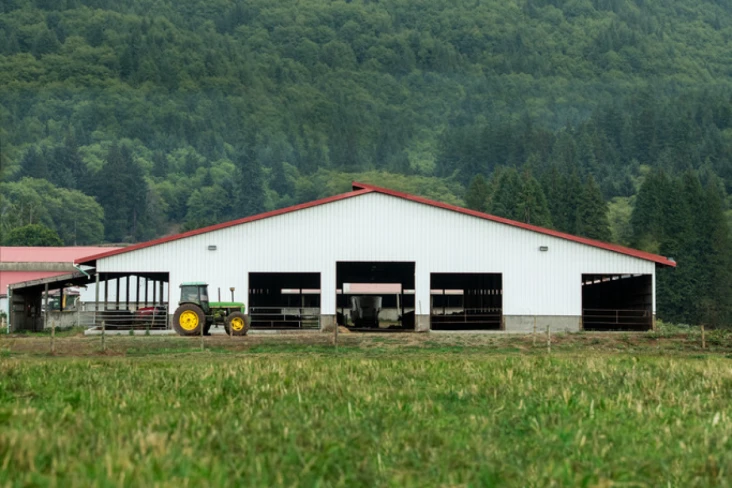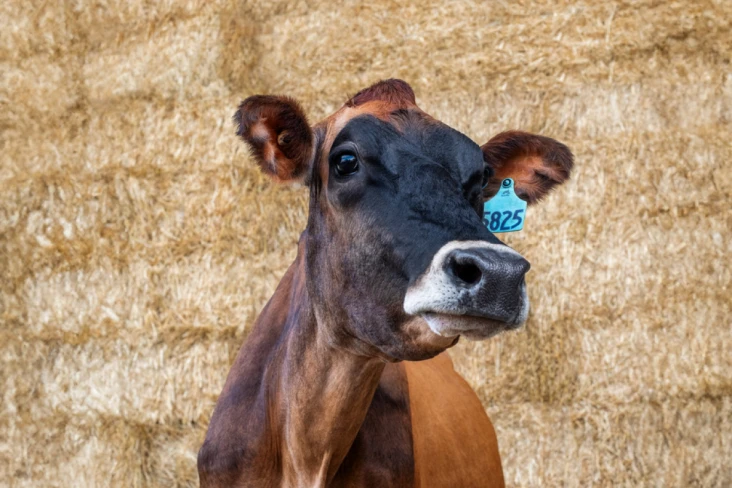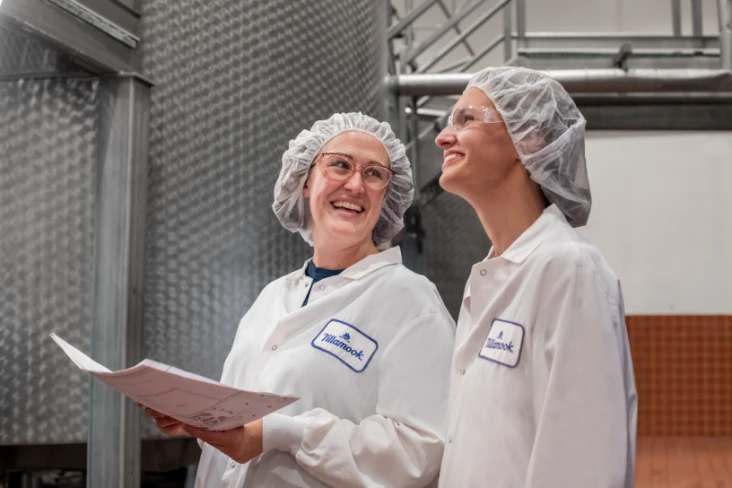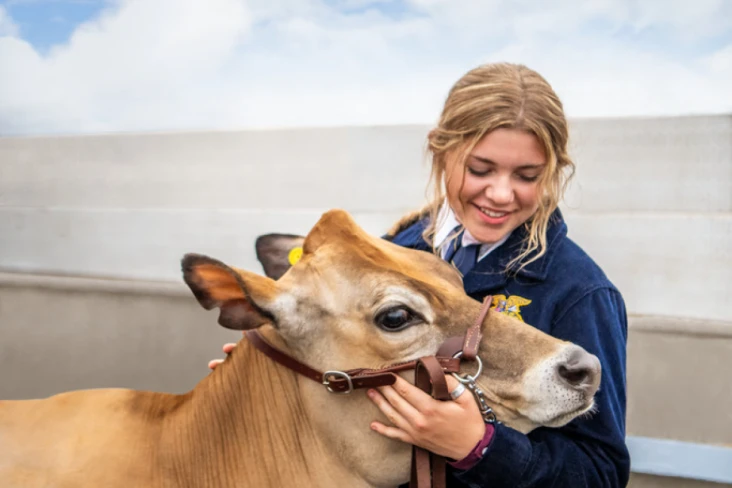2022 GLOBAL REPORTING INITIATIVE ISSUE BRIEF
Since our founding over 110 years ago, our expectation remains the same: delicious dairy products made the right way. We strive for a high standard of excellence across our value chain. This starts with high-quality, recognizable ingredients and impeccable food safety. Maintaining food safety and product quality upholds our brand reputation, serves our consumers and protects our business from risk. Simply put, it is the right thing to do. When every step of the process aligns with our values, the result is great-tasting products that people are proud to enjoy and inspired to share with others.
One of our six Stewardship Commitments is Inspired Consumers. We outline this commitment formally in our Product Excellence Policies, which address five key areas of importance to our consumers: ingredients and product design; manufacturing; packaging; supply chain; and food safety and quality.
Key Players: Every employee is held responsible for maintaining and upholding our high-quality standards. Our Senior Director of Quality leads a department of food safety and quality professionals to ensure each product meets our standards. This department conducts facility inspections and food quality testing throughout our business and our supply chain to maintain compliance with regulations and industry best practices. Additionally, our Farm Services Team is responsible for tracking the quality and safety of milk procured from TCCA farmer-owners.
We demand the highest safety and quality standards for ourselves, our suppliers and our contract manufacturers. Our Supplier and Contract Manufacturer Expectations Manual is updated annually to outline and enforce our expectations of non-milk suppliers of ingredients, components and manufacturing procedures. We require them to follow the same quality and food safety standards that we implement in our own manufacturing operations. The Supplier and Contract Manufacturer Expectations Manual also has a requirement for contract manufacturers that source milk to provide a recombinant bovine somatotropin (rbST) affidavit, antibiotic affidavit, National Milk Producers Federation FARM Participation Certification, Annual Grade A License and Milk Quality Data Agreement. Additionally, our TCCA Cooperative Member Handbook and Contract Milk Suppliers Handbook list milk quality and safety requirements for milk sourced from our TCCA member farms and all contract milk. While milk is our most commonly used ingredient, we have high quality standards for all our ingredients. We are committed to the responsible sourcing of all priority ingredients.
Quality dairy products require quality milk. Every single shipment of milk that arrives at our manufacturing facilities is screened for somatic cell count, bacteria and antibiotics. Somatic cell count is a measure of immune cells in milk. Low somatic cell count numbers indicate good milk quality and good cow health. All milk is tested for antibiotics and can’t be unloaded from the truck unless it is negative. Additionally, milk undergoes extensive temperature monitoring on farms and at the plant before unloading to make sure milk has been cooled properly and stays cold. We test every load coming from farms and immediately share this data with the farmers so that they can check the health status of their herd or take other corrective measures. Our Farm Services Team monitors milk quality from our farms daily and works with our Quality Control Laboratories to monitor, troubleshoot and quickly resolve any milk quality problems. We more thoroughly analyze data monthly, reporting to our farmer-owners the top producers and ranking them individually on their milk checks.
We always use Grade A milk. Grade A is a set of requirements both at the farm and processing plant that encompasses everything from temperature for storing milk, to testing done at milk receiving at the plant. Our farmer-owners are required to produce milk in accordance with milk quality guidelines that exceed local, state and federal health standards for safety and wholesomeness (see section below). We incentivize high-quality milk by offering farmer-owners a premium when quality is above certain thresholds. We also penalize them for milk that is below our standards and reject milk that doesn’t meet our requirements for use at the plants. We strive for continuous improvement and update our milk quality standards every few years.
Through our formalized internal process, customers and consumers are encouraged to contact TCCA directly via phone or via the Contact Us page on our website to report a product complaint. We monitor and respond to complaints on a daily basis, request product code information and escalate to internal stakeholders as appropriate. These stakeholders follow internal protocol and implement Corrective Action Plans and Supplier Correction Action Requests as appropriate.
AT TCCA, we follow these principles:
We commit to bringing to market the most consistent, highest-quality dairy products, while maintaining the integrity of Tillamook® products.
We demand the highest nutritional standards applicable, and use simple, wholesome, recognizable ingredients that are traceable to the source.
Management systems in our own facilities and our supplier associates are based on best practices for agriculture and manufacturing.
We require systematic preventive approaches, such as a Food Safety Plan that controls the flow of food ingredients and products along the entire food chain.
We innovate at each stage of product development and upon bringing a product to market.
We source responsibly, selecting supply chain associates that share our values, including food safety.
We practice continuous improvement to advance the traceability of our ingredients and components, and to support evidence-based decisions and data to make changes to our practices. We look to adopt proven technology based on relevant scientific studies.
Food Safety Modernization Act: All TCCA facilities and supply chain associates are required by law to comply with the Food Safety Modernization Act (FSMA) regulations, which we consider the minimum standard for safety and quality. Topics in FSMA include Hazard Analysis Risk Based Preventative Controls, supply chain verification, sanitary transportation, allergen control, produce handling and international imports.
Global Food Safety Initiative: All TCCA products are assessed for improvements in health and safety impacts through the Global Food Safety Initiative. This is a voluntary, internationally recognized food safety certification system that requires implementation of a Hazard Analysis Critical Control Point (HACCP) and annual third-party audits of food production facilities and management practices. The HACCP management system applies to TCCA facilities and our co-manufacturing colleagues. It also provides a systematic approach to preventing biological, chemical and physical hazards in a food manufacturing environment.
Food Safety Training: The HACCP plan requires implementation of Good Manufacturing Practices (GMP), which outlines food safety training designed to keep our products, employees and visitors safe. GMP and food safety training is provided to all new employees and a refresher is provided to all employees on an annual basis. All visitors and contractors who enter our manufacturing facilities are required to complete GMP training as well.
Quality Control Laboratory Testing: We operate five Quality Control Laboratories to ensure that our food safety and quality standards are met at our Tillamook and Boardman manufacturing facilities in Oregon. These labs test incoming raw milk quality and composition. They also test finished products such as ice cream, cheese, whey, yogurt, sour cream and butter to ensure our products have the correct composition of fat, protein and salt, as well as bacterial load. Our Tillamook facility also has a microbiology lab with ISO 17025 accreditation — internationally recognized standards that require an audited management system for laboratory processes. This lab tests samples from our Boardman and Tillamook manufacturing environments to evaluate for the presence of pathogens.
Our consumers insist on eating wholesome products made from wholesome ingredients. Our products contain no artificial coloring, no artificial flavors, no artificial sweeteners and no high-fructose corn syrup. In fact, we have created a list of unacceptable ingredients we will not allow in our products. This list is enforced with our internal product development process, contract manufacturing colleagues and other supply chain associates.
We value open and transparent interactions with our consumers. One way we build trust is through product labeling. We are committed to thorough and accurate labeling practices, including identification of allergens, accurate ingredient lists, recyclability of packaging, as well as kosher and Halal certifications where applicable. Our Quality Regulatory Team oversees specifications and label approval to ensure alignment from recipe to final package.
In response to consumer demand, all TCCA products are rBST free. All TCCA farmer-owners, other milk suppliers and co-manufacturers have signed an affidavit and pledged not to use milk from cows treated with rBST, an artificial growth hormone. All TCCA product packages contain the required FDA disclaimer, “The FDA has stated that no significant difference has been shown between milk derived from rBST treated and non-rBST treated cows.”

U.N. Sustainable Development Goals
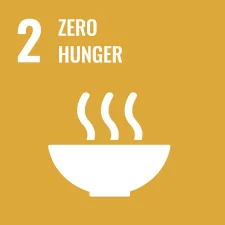
Goal 2
End Hunger, Achieve Food Security and Improved Nutrition, and Promote Sustainable Agriculture
We produce safe, wholesome, and high-quality food products.
